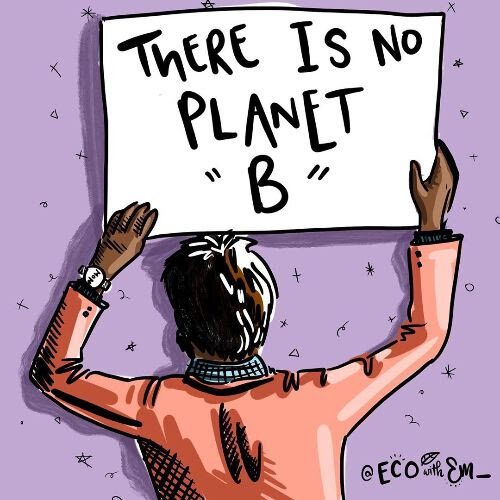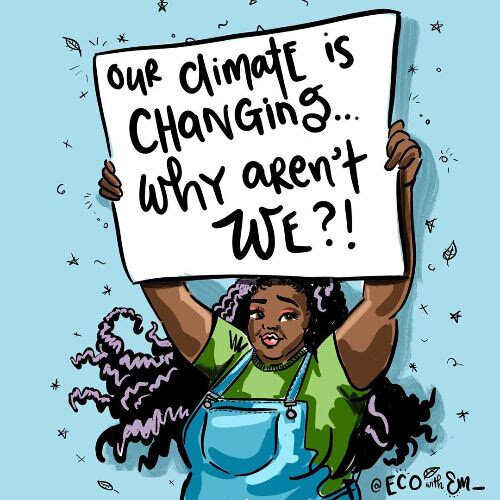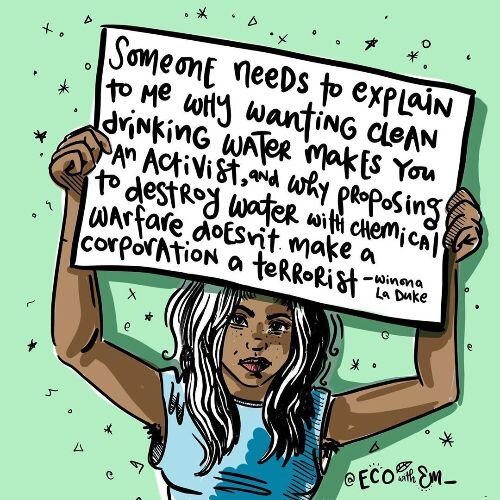[Issue 099] How companies are responding to #MeToo
Good morning!
I received so many great responses to last week's newsletter about the purpose vs. responsibility of companies. I loved hearing your thoughts on the topic, which mostly boiled down to:
I even had engaging conversations with a few of you via Instagram. This DM from Dallas T. (shared with consent) hit the nail on the head:
To me this gets to the question of intent versus impact. When I conduct anti sexual harassment trainings, I coach people that intent is not what matters — it’s impact. If I did not intend to run over you with my car, but I do, you’re still run over. If I start a company and intend to do good things but the choices I make as a business owner don’t align with that intent, then the impact isn’t there.
Too many companies focus on their intent (Tom’s shoes one for one giving model jumps out at me) and not the impact (this disrupted local economies, and was harmful in some ways)
This topic doesn't end here, because it's the foundation of everything I talk about in this newsletter. So let's keep the discussion going.
This week, I'm excited to share the launch of a new project led by ABL reader and journalist Iris Kuo called Force the Issue. Particularly critical in the wake of the #MeToo movement, this campaign and database documents sexual harassment policies at major brands and corporations.
The goal of the campaign is to get 900 publicly traded companies to stop using the harmful practice of forced arbitration for sexual harassment.
When you visit the site, you'll see a database of now 219 companies labeled based on their use of the practice.
All companies did not respond to their request for information. Given that statistically most companies do require arbitration for sexual harassment claims in at least some cases, they notified companies that a lack of response would be interpreted as an indication the organization likely does.
So how did companies do? As of last night when I downloaded the data, only 17% of the companies the team reached out to do not require arbitration for sexual harassment claims.
As you can see, many companies have yet to respond.
If you work at a publicly traded company, you can search the database for your employer to see their response, when they were contacted, and who to reach out to with your own request for the information. I know I'll be doing that for my employer, which has yet to respond.
Here is the list of the companies that DO NOT require arbitration:
So why does this even matter? Some of you may be wondering.
Here's are a few of the reasons I liked most from this investor statement:
Forced arbitration creates a costly culture of acceptance for sexual harassment. A typical Fortune 500 company loses over $14 million per year because of absenteeism, low productivity, and staff turnover as a result of sexual harassment. While arbitration may save the employer on legal bills, sexual harassment makes it harder for everyone in the company to get work done and that, not legal bills, is what costs employers the most in the long run.
All employees are made more vulnerable by forced arbitration of sexual harassment claims, especially women, African Americans, and low wage workers. A recent study found that women and African-American workers are more likely to be subjected to forced arbitration and that the practice is more common in low-wage workplaces. This suggests that forced arbitration disproportionately impacts vulnerable communities.
Ending the practice inspires brand loyalty from a generation of socially savvy, values-motivated consumers, which is critical for long-term business success. The #MeToo movement is influencing and educating the next generation of consumers, who care now more than ever before about workplace safety for women and how companies are handling sexual harassment claims. Eliminating forced arbitration for these claims is quickly becoming an indicator of a company's responsiveness to customers’ values and workplace safety for its women employees. Doing so also demonstrates that a company intends to remain a relevant actor in modern business by being attuned to the needs of its employees, expectations of its customers, and major shifts in the cultural landscape.
This is the kind of momentum many of us were hoping for post #MeToo, and I hope we soon see the day where harassers are no longer protected by organizations.
️❤️️,
Nikita
P.S. Show Iris and her partners on this project some love (and financial resources if you have any!) for their hard work: iris@getledbetter.com
It's funny but it's not funny.
Will you be striking on Friday? I would love to hear why or why not. You can also read more about what we can expect from companies here.
Google Settles With U.S. Over Workers; Complaints It Stifled Dissent. Google has reached a settlement with the National Labor Relations Board after multiple employees claimed the company stymied dissent. One employee even claims he was fired for being “an outspoken conservative”. Under the settlement Google must provide notices to employees reminding them of their rights, and that Google will not retaliate against employees for exercising their rights. // NY TIMES
Whole Foods Will Take Away Healthcare From Some Of Its Employees Starting January 1.At the very start of 2020, the Amazon-owned Whole Foods chain will end healthcare benefits for some of their part time workers, affecting up to 1,900 workers. The company is bumping the hourly threshold to qualify for benefits to 30 hours a week instead of 20. Amazon is claiming it will affect less than 2% of their workforce, and is hoping to cheer up the employees who lose their benefits by saying that they will still get their 20% discount. // FAST COMPANY
Walmart Likely Discriminated Against Female Store Workers, EEOC Finds. The Equal Employment Opportunity Commission has sent out a memo saying that Walmart likely discriminated against 178 of its female employees by either paying them less or passing them over for promotions due to their gender. The EEOC has asked the women who filed the complaints and Walmart to come to a settlement. // WSJ
5 Things To Know About The United Auto Workers Union Strike. This article details why the United Auto Workers union is officially striking against General Motors, and where it is happening and what General Motors has offered the workers. The strikes affect 9 states, and in total 52 facilities are affected by the strike. // FAST COMPANY
How A Grassroots Group Of Moms Helped Push Walmart And Other Chains To Act On Guns. Moms Demand Action for Gun Sense in America, a grassroots group started by a mother the day after the Sandy Hook shooting in 2012, has successfully managed to get multiple businesses, like Walmart, Kroger, Walgreens, and others to adopt policies into their storefronts that discourage open carrying. In total, 40 brands have made official changes to their store policies in response to the groups work. The group claims its success comes from focusing on state laws and companies and working in “statehouses and boardrooms”. // FAST COMPANY
Sustainable Investing At All-Time High, Says Morgan Stanley. A study from Morgan Stanley shows that sustainable investing is gaining popularity, with 85% of individual investors expressing interest in sustainable investing strategies. The study furthers this by saying 52% of the general population, and 67% of millennials are involved with at least one form of sustainable investing. And in the U.S. sustainable investing assets have reached $12 trillion. // TRIPLE PUNDIT
Amazon Changed Search Algorithm In Ways That Boost Its Own Products. Amazon is changing its product search algorithm after employees inside Amazon have contested the change. Now, instead of showing the most relevant or best-selling listing firsts, Amazon will prioritize listings that are more profitable for the company, like the in house Amazon Basics line. // WSJ
Lush Closing Operations And Mobilizing Employees To Strike For The Climate. This coming Friday, September 20th, Lush will be shutting down virtually all their operations in order to help mobilize their 5,000 U.S. employees to participate in the Friday Global Climate Strikes. They will also shut down on September 27th in Canada for their Canadian employees to do the same. // TRIPLE PUNDIT
This week's headlines were curated by ABL's intern, Lora, with GIFs from yours truly.
I'm loving these illustrations for the Climate Strike by Em Ehlers.
You can find more on her Instagram.
Above the Bottom Line needs your support.
Our team puts a lot of time and energy into providing you with quality content, and your contributions help me pay everyone a living wage for their work!














